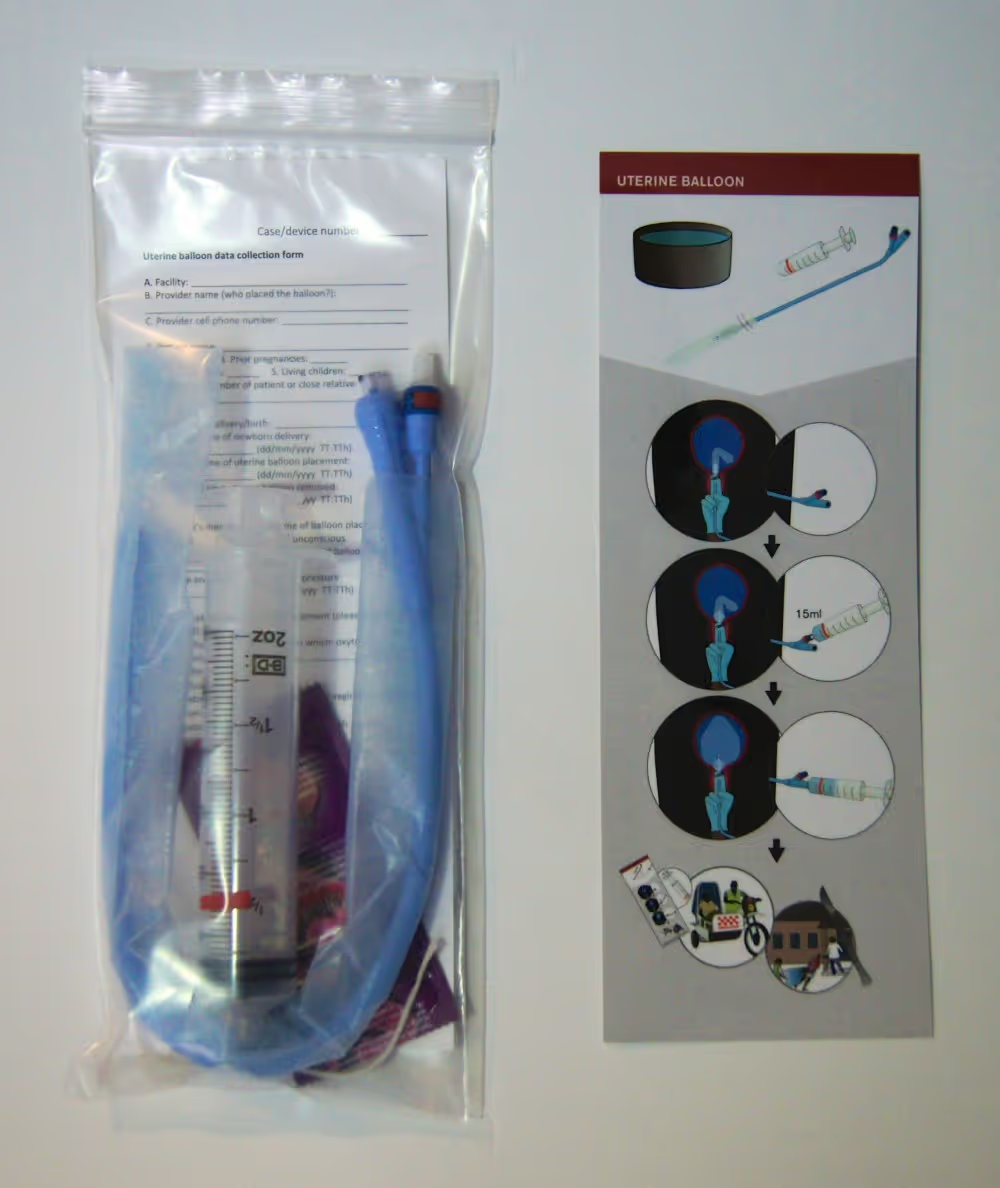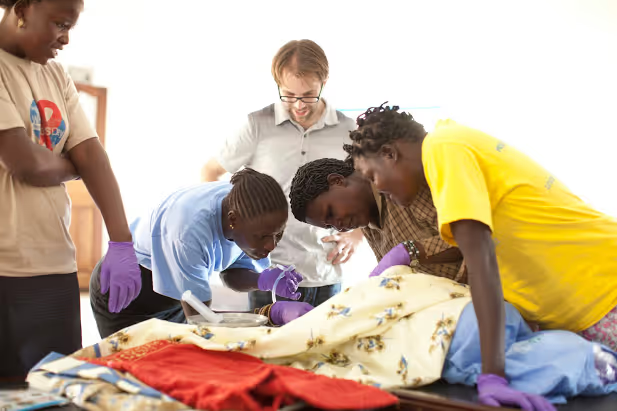Every Second Matters for Mothers and Babies - Uterine Balloon Tamponade

Project overview
Project solution
This project offers [specific solution or intervention] to tackle [challenge]. By implementing [strategies, tools, or innovations], the project aims to achieve [desired outcomes]. The approach is designed to [specific actions or methods] to bring about meaningful change in [community, region, or issue area].
Expected outcomes
This project aims to achieve [specific outcomes], such as [measurable results, improvements, or changes]. The expected impact includes [benefits to the target community, advancements in research or innovation, or long-term effects]. By the end of the project, we anticipate [specific changes or milestones] that will contribute to [broader goals or objectives].
Summary
At Massachusetts General Hospital (MGH), Division of Global Health &; Human Rights, Department of Emergency Medicine, we have developed the Every Second Matters for Mothers and BabiesTM – Uterine Balloon Tamponade (UBT) implementation package to address the high rates of maternal deaths due to PPH. UBT involves placing a balloon within the uterine cavity and inflating it with water to achieve tamponade and arrest bleeding. Our best-evidence package consists of a condom tied to a urinary catheter and inflated with clean water through a syringe and one-way valve. The kit can be assembled from components readily available in resource-limited settings and includes a training program for maternal health workers to utilize the UBT. We will roll out the package to up to 120 health facilities across four informal settlements of Sierra Leone, in collaboration with the Ministry of Health and Sanitation of Sierra Leone and World Vision.
What humanitarian need is being addressed?
When disaster strikes, women continue to get pregnant and give birth; it is estimated that 1 in 5 women of childbearing age is likely to be pregnant [1]. Yet, due to their increased vulnerability and the lack of family planning and emergency obstetric services in times of crisis, pregnant women face greater risk of maternal morbidity and mortality [2-4].
By mitigating the number of maternal deaths, community rebuilding, recovery, and resilience will be promoted. Women are the backbone of families and communities. If left unaddressed, PPH will continue to kill thousands of women in Sierra Leone each year, imperiling the country’s development. Targeted support to women, specifically to the leading cause of maternal death, is an effective way to ensure the health, security, and local capacity of communities. The UBT package is relevant because of the domino effect it will ignite. By tackling PPH in this at-risk setting, the UBT package will not only prevent hundreds of maternal deaths in Sierra Leone but will also assist in the country’s preparedness for future crises.
What materials or research outputs are likely to be produced?
By the end of the 18-month project, we will have introduced our UBT package intervention to healthcare providers in up to 120 facilities within the four informal settlements in Sierra Leone. The results of this activity will include a strong evidence base on safety and effectiveness, feasibility, implementation challenges and strategies, a comprehensive training module for the management of PPH that includes use of UBT, solutions for key operational issues that may impact long-term success of UBT introduction, and essential data to inform local and international policy decisions and clinical practice.
References:
- Bartlett, L., Aitken, I., Smith, J. M., Thomas, L. J., Rosen, H. E., Tappis, H., &; Burnham, G. (2012). Addressing Maternal Health in Emergency Settings. In Maternal and Perinatal Health in Developing Countries (pp. 210–225). CABI.
- Swatzyna RJ, Pillai VK. The effects of disaster on women’s reproductive health in developing countries. Glob J Health Sci. 2013 Jul;5(4):106–13;
- Haar RJ, Rubenstein LS. Health in fragile and post-conflict states: a review of current understanding and challenges ahead. Med Confl Surviv. 2012 Dec;28(4):289–316;
- O’Hare BA &; Southall DP. First do no harm: the impact of recent armed conflict on maternal and child health in Sub-Saharan Africa. J R Soc Med 2
Project delivery & updates
Stay up to date with the latest developments from this project. Here, you will find details on what has been delivered, resources created, and regular updates as the project progresses. Access key documents, reports, and other materials to see how the project is making an impact.
Resources
Journal article
LEARN MOREJournal article
LEARN MOREJournal article
LEARN MOREJournal article
LEARN MOREJournal article
LEARN MOREJournal article
LEARN MOREJournal article
LEARN MOREReport
LEARN MORE